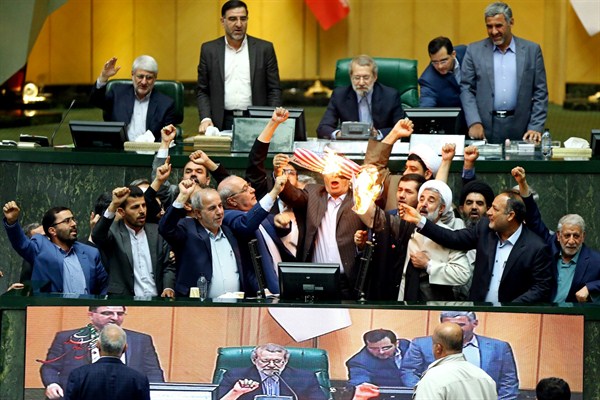On Tuesday, from the Diplomatic Room of the White House, President Donald Trump announced that the United States would withdraw from the Joint Comprehensive Plan of Action, better known as the Iran nuclear deal, which waived multinational sanctions on Iran in exchange for strict controls on Tehran’s nuclear program. Listing a litany of destabilizing actions by the Iranian regime, including sponsorship of terrorism, support to armed proxies, the development of ballistic missiles and “plundering the wealth of its own people,” Trump declared that no action is “more dangerous” than Iran’s “pursuit of nuclear weapons—and the means of delivering them.” The 2015 agreement, Trump insisted, “lifted crippling economic sanctions on Iran in exchange for very weak limits on the regime’s nuclear activity—and no limits at all on its other malign behavior.”
“We cannot prevent an Iranian nuclear bomb under the decaying and rotten structure of the current agreement,” he added.
Withdrawing the U.S. from the Iran agreement has long been advocated by organizations on America’s political right, like the Heritage Foundation and the Foundation for the Defense of Democracies, as well as the leaders of Iran’s regional enemies, particularly Israel and Saudi Arabia. But commentators across the American political spectrum vociferously opposed Trump’s decision. It’s not often that the editorial board of The New York Times and “paleoconservative” Patrick Buchanan share a position.

